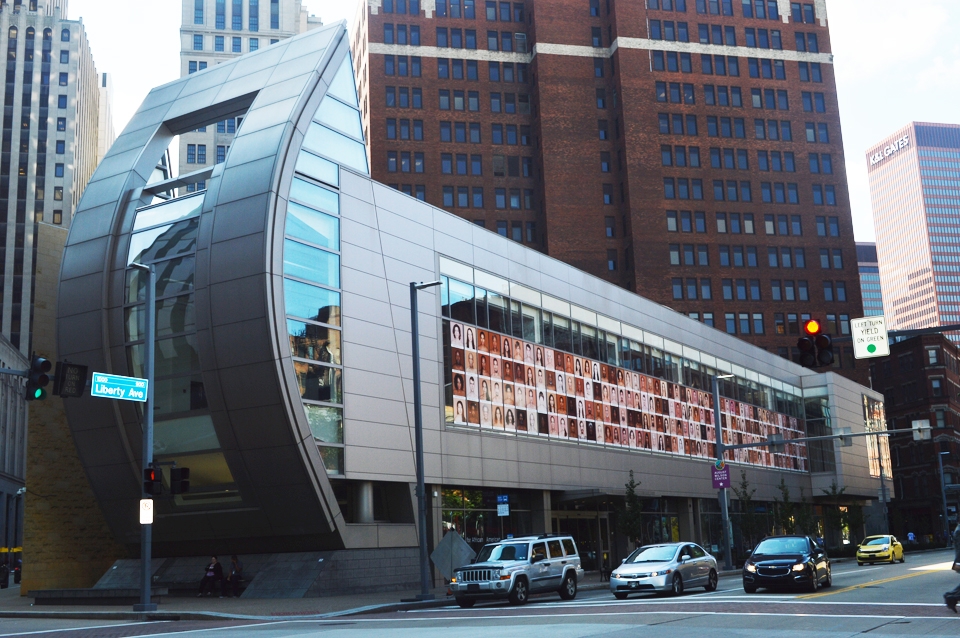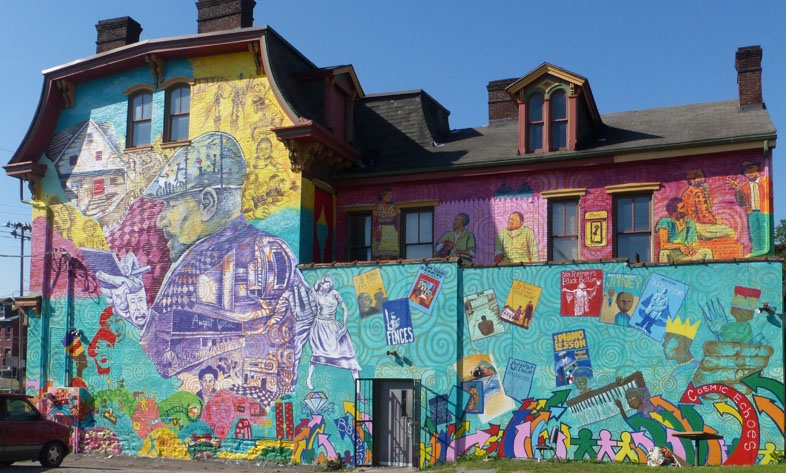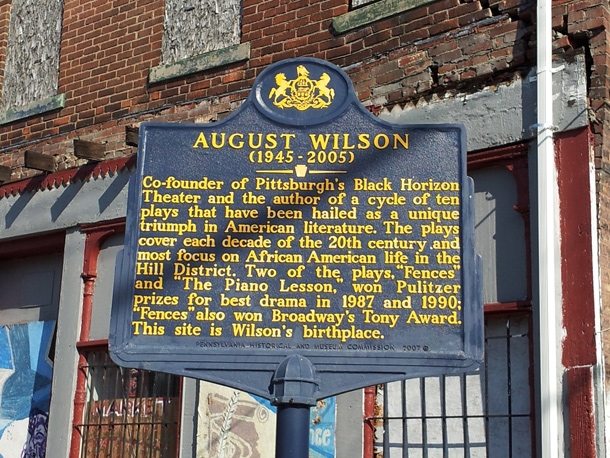02/28/2019
Liza Zulick | Staff Writer
In celebration of Black History Month, Duquesne University hosted the panel discussion, “August Wilson’s Pittsburgh: Work and Life,” on Feb. 26. Hosted by the Gumberg Library, panelists Paul Ellis, Betina Jones and John Hadlock presented on the topic of August Wilson, his plays and how they tell the history of Pittsburgh’s Hill District.
The panel was introduced by Theodore Bergfelt, a Humanities Librarian at Gumberg Library. Bergfelt spoke of the exhibit currently on display, “August Wilson’s Pittsburgh Plays.” This display shows the lives of African Americans and their experiences in the 20th century. This display will be open to the public at the until Feb. 28.
The first speaker to begin the discussion was Jones, adjunct instructor in Duquesne’s Department of English and author of the dissertation This is Me Right Here: August Wilson and Pittsburgh’s Hill District. Jones introduced the idea of how Wilson’s plays represented the history of the Hill District. Some of Wilson’s plays discussed included The Piano Lesson, Two Trains Running, King Hedley II, Jitney and Gem of the Ocean.
“Most people would say the Civil Rights movement is defined by Rosa Parks, who was too tired to move. It starts with her and either ends with Martin Luther King’s birthday being named a holiday or Obama becoming president. Somehow this doesn’t include the activism and the change,” Jones said.
Jones argued that the main historical movement displayed throughout Wilson’s plays was the redevelopment of the Hill District. The Urban Renewal process, which took place between the 1950’s and the 1960’s in Pittsburgh areas like the Hill and East Liberty, are topics in Two Trains Running, King Hedley II and Radio Golf. This is a large part of Pittsburgh’s own black history due to how many African-American families were displaced during this reconstruction.
“Please don’t call him someone who gave a voice to the Hill District. The voice was already there,” Jones said.
The next panelist, John Hadlock, a Ph.D. candidate in the Department of English who has presented on Wilson’s works at local conferences, discussed in depth Wilson’s play The Piano Lesson.
Hadlock discussed the importance of African-American history as seen through this play by looking at the piano as a symbol of ancestral history. The piano in the play is carved by an ancestor of the characters. The main storyline of the play is whether or not to sell the piano. This brings about the argument of familial history and the importance of African-American history in America.
To conclude the panel discussion, attorney Paul Ellis, executive director of the August Wilson House and August Wilson’s nephew, spoke of what it was like growing up with Wilson and the role the August Wilson House plays with Duquesne University.
“When I was a teenager, we didn’t really know what my uncle was doing. He was always buzzing around, traveling and writing but no one really knew what a playwright was. People weren’t even using that word back then,” said Ellis.
Ellis reflected on the time he first attended his uncle’s Broadway show and how he never anticipated being able to have that experience so many times.
“I developed this deep appreciation for arts and culture. I watched it change people,” said Ellis.
This idea to purchase the August Wilson House came from a conversation he had with his uncle. Since his uncle was now famous and this was the house he had grown up in, Ellis thought it was important to keep that in the family. In February of 2005, the bank foreclosed on house and the man currently living there. This gave Ellis the opportunity to purchase the property before it ever hit the market.
Although August Wilson died before the organization was able to be developed, Ellis and Wilson had once agreed that the house was not going to be a museum, but rather something more active within the community.
In December 2008, Ellis was able to name the August Wilson House as a nonprofit. It was also named as an official historical landmark. Since then, the organization has been involved with communities in the Pittsburgh area, including the Duquesne community.
Every spring since 2012, Duquesne has a class that is involved with working with the nonprofit. Students from the Duquesne community continue to volunteer their time with the organization.



